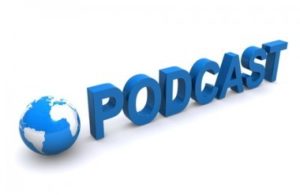Have questions about a blog post? Email the author directly. We love hearing from people.
28 Nov Sales Management Tips

This interview with Laurie Schloff originally appeared on Sales Management Services website and was written by Suzanne Pailing
More Listening Tips and the Importance of Communication Skills in Selling
To succeed in a sales position of any type, you must be a proficient listener. This comes more easily to some reps than others. To help salespeople continue to develop this ability, sales leaders should run listening exercises during staff meetings, recommend books and articles on the subject, monitor sales calls and offer targeted coaching.
Becoming a better listener takes practice, practice, practice.
For more tips on this all important skill, I turned to Laurie Schloff, a career communication coach and author of “Smart Speaking,” who works for the Speech Improvement Company in Brookline, Massachusetts. Laurie’s clients include Fidelity Investments, The TJX Companies, and Vertex Pharmaceuticals. Laurie generously shared her advice about listening.
Talking / Listening Ratio
Laurie often gets asks how much reps should talk on a sales call? She says, “Every customer is different. Some prospects talk your head off, while others speak less. During the first meeting it should be no more than 50/50 (rep/customer), ideally 25/75. In subsequent meetings the ratio may shift, but always be aware of attending to your customers needs and reactions.”
17 Nov How to Deal With FEAR in 4 Steps

1. Fear, and often fear of speaking, ignites an immediate flight or freeze response in your body.
First you need to calm down both your nervous system and body response in order to think clearly.
Here’s a focused deep breathing exer
cise that is extremely helpful. Research has shown it instantly moves the brain’s reaction to calmness even in highly stressful situations. This creates the space you need to make decisions and take proper actions. It is recommended to train with this simple exercise during times when you’re not stressed so you remember it in difficult ones. Your body’s response will come much faster when it is ingrained in your habits. (more…)
14 Nov What to do when your mind goes blank on stage
 This article by Laurie Schloff originally appeared on SpeakerHub
This article by Laurie Schloff originally appeared on SpeakerHub
What will happen if you go blank on stage? Knowing the answer will help overcome fear of speaking.
Obviously, you will be struck by a lightning bolt and no one will ever talk to you again.
Seriously, even experienced speakers have moments when they look at the audience with a frozen stare and wonder:
Who are these people?
What am I doing here?
And what on earth am I supposed to be talking about?
The trick to managing your stress is to accept these uncomfortable moments and launch into “Blank-out Recovery”.
27 Oct Beta Testing
An article this week on StatNews.com, a sister site of BostonGlobe.com, reported on a California startup’s plan to broadly market the medication propranolol as a quality-of-life aid, including to reduce nervousness associated with public speaking.
Companies looking to innovate and disrupt will continue to explore new solutions to old problems, and vice versa. But this particular idea causes me concern as a speech professional. (more…)
26 Oct Podcast: The Only 3 Ways to Convince Anybody of Anything
 Being persuasive is the topic most often requested by our clients. We train people all over the world – Fortune 500 executives, managers in companies of all sizes, entrepreneurs, politicians, athletes, and educators – who tell us again and again: they want to be more convincing. (more…)
Being persuasive is the topic most often requested by our clients. We train people all over the world – Fortune 500 executives, managers in companies of all sizes, entrepreneurs, politicians, athletes, and educators – who tell us again and again: they want to be more convincing. (more…)
23 Oct I Hate Small Talk
[vc_row row_type=”row” use_row_as_full_screen_section=”no” type=”full_width” angled_section=”no” text_align=”left” background_image_as_pattern=”without_pattern” css_animation=””][vc_column][vc_column_text] Is small talk really so small? Chitchat about unimportant matters provides warm-up time for more meaningful interaction. During small talk, shifts in several dimensions of interaction can occur-from discomfort to comfort, mistrust to trust, impersonal topics to personal ones. Then talkers turn to their real business.
Is small talk really so small? Chitchat about unimportant matters provides warm-up time for more meaningful interaction. During small talk, shifts in several dimensions of interaction can occur-from discomfort to comfort, mistrust to trust, impersonal topics to personal ones. Then talkers turn to their real business.
Jay, an intense engineer who wanted to meet his soulmate, refused to make small talk. He insisted, “I like to walk up to a woman and say, ‘I’ve been divorced three times, and I finally know myself well enough to sustain a close relationship.'” Unfortunately, he turned off more women than he turned on with his direct approach. (more…)
4 Oct Overcoming 5 Hurdles That Prevent Success
 In my experience, there are 5 hurdles that stand to prevent you from being successful. I’ve delved into each below.
In my experience, there are 5 hurdles that stand to prevent you from being successful. I’ve delved into each below.
- Fear
ISSUE: Fear of failure, of not living up to expectations – your own and those of others, the fear of not being good enough, the fear of being ridiculed or singled out in your community, having to go the way alone, the fear of failing, of losing everything, and there are so many more.
Fear is a nagging, physical, nervous sensation that eats you up, doesn’t let you sleep, keeps you up at night or greets you first thing in the morning, inhibiting clear thinking.
SOLUTION: First thing in the morning, jolt your body into action when you wake up: do 10 push-ups coming straight out of bed. Not 5, not 50, just 10. This will set you up for a great day ahead as your body gets all the right triggers to get going.
In your morning routine, take 5 minutes to focus on what you DO want, not what you don’t want as so many do.
Write it physically down on a piece of paper every single day – and keep that paper with you during the day as a reminder (not on your phone, computer, tablet etc – on a piece of paper in your handwriting). Your mind and body will shift gears from fear to determination.
Do this every single day. For how long? Every.Single.Day. This is your personal GPS keeping you on track. Try it, it works. (more…)
26 Sep Tradeshow Voice
 Have you ever lost your voice at a tradeshow?
Have you ever lost your voice at a tradeshow?
We’ve all been there. It’s day 3 of the show, your staff is complaining of aching feet and backs, overall body energy is down, yet there are still 2 more days left to go in the show. Their voices are starting to crack, coughing more often, clearing thoughts, or worse – voices become horse! How do you keep your staff from getting that trade show voice?
Your voice is your tool, and as with any tool, you need to maintain it if you want it to function well. When you are at a tradeshow, the people you meet and speak with have an average of 2 minutes to judge you and your company. They look at a few things, such as what your booth looks like, how you are dressed, what are you selling, what you are saying and most importantly how you are saying it? (more…)
19 Sep People Complain That I’m Too Loud
 Most of us instinctively do a good job of setting our volume so that it takes into account the distance between ourselves and listeners, the amount of background noise, and the degree to which we want to broadcast our message.
Most of us instinctively do a good job of setting our volume so that it takes into account the distance between ourselves and listeners, the amount of background noise, and the degree to which we want to broadcast our message.
One client who was known as “The Megaphone” in his office, didn’t do so well at this. Ernie came to see me when he realized that colleagues were requesting the cubicle farthest from his. One pal complained that he could hear Ernie’s conversations better than his own. Ernie got the message “loud and clear” that his excessive volume was an office nuisance. He was receptive to working on his problem, though he was a little bit puzzled. He considered himself the quietest one in his family of five brothers. (more…)
